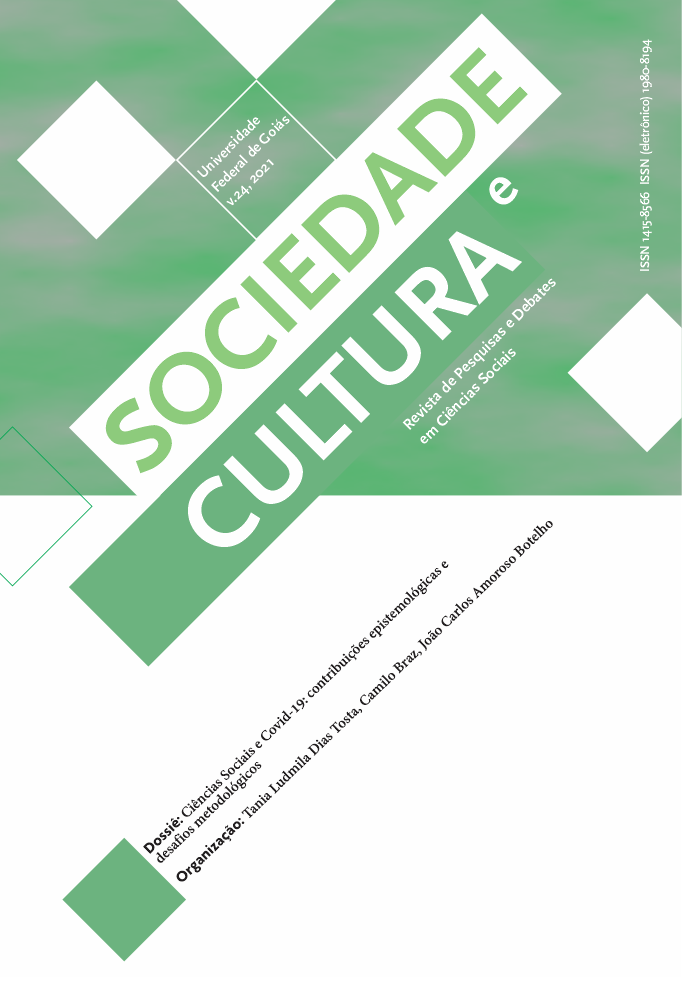Social distancing or distancing the social? A non-anthropocentric approach in anthropology
DOI:
https://doi.org/10.5216/sec.v24.66203Abstract
Science and Technology Studies (STS) and Actor-Network Theory (ANT), as well as contemporary ‘beyond the human’ anthropology, promote a non-anthropocentric approach to the social sciences, considering non-human entities as a part of the social world. From this non-anthropocentric approach, this article aims to challenge the use of ‘social distancing’ as an accurate term, the qualifier ‘social’ being associated to human beings only. If distancing is a key concept to prevent human-tohuman COVID-19 transmission, it would be more accurate to talk about physical or bodily human distancing. By talking about social distancing, we are actually distancing the social, narrowing its complexity, as it is composed by entities that are not necessarily human or even visible to our eyes, such as the new coronavirus. This article is an invitation to look for alternative terms to the concept of ‘social distancing’ that enable us to better express the complexity of the social in a less anthropocentric way.
Downloads
Downloads
Published
How to Cite
Issue
Section
License
Copyright (c) 2021 Sociedade e Cultura

This work is licensed under a Creative Commons Attribution 4.0 International License.
Authors who publish in this journal agree to the following terms:
- Authors retain the copyright and grant the journal the right of first publication, the work being simultaneously licensed under the Creative Commons Attribution License, which allows the sharing of the work with acknowledgment of authorship and of the initial publication in this journal;
- Authors are authorized to enter into additional contracts separately, for non-exclusive distribution of the version of the work published in this journal (eg, publishing in an institutional repository or as a book chapter), with acknowledgment of authorship and of the initial publication in this journal;
- Authors are allowed and encouraged to post and distribute their work online (eg, in institutional repositories or on their personal page) at any point before or during the editorial process, as this can bring productive change as well as increases the impact and the citation of the published work (see O Efeito do Acesso Livre).



